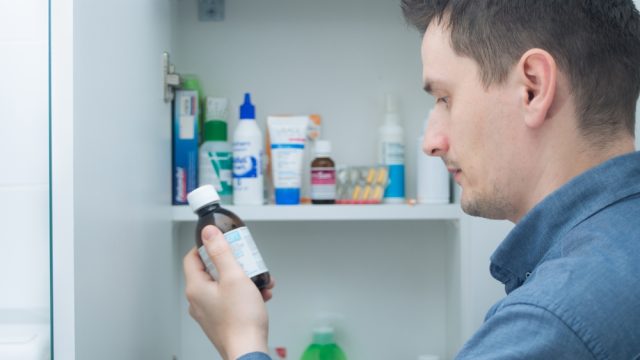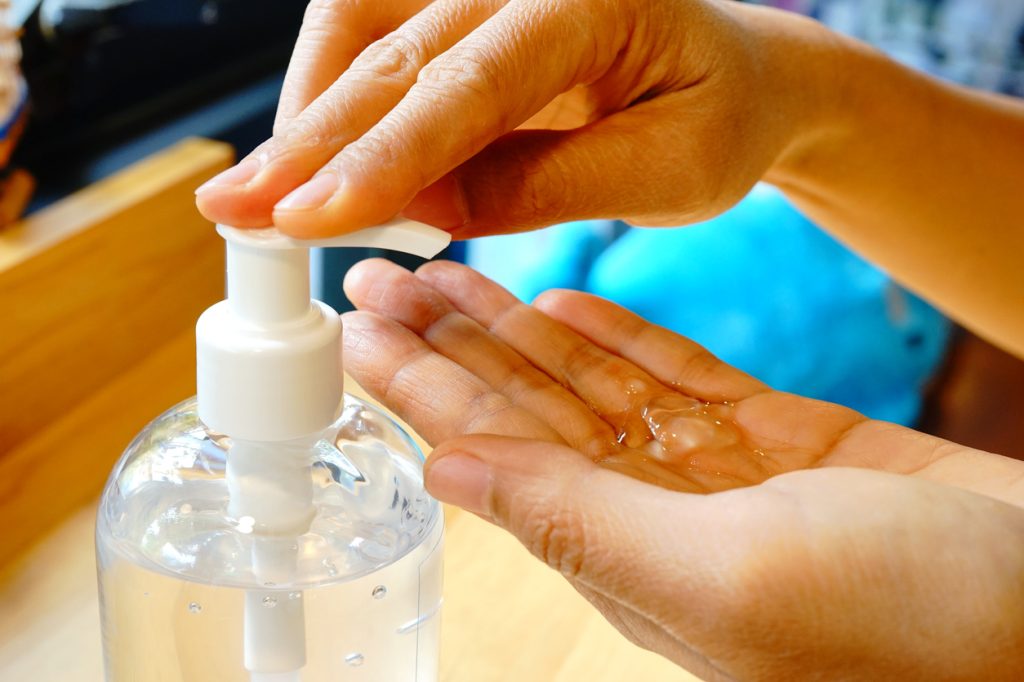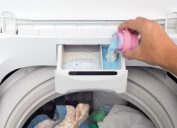FDA Issues New Warnings on Medical Recalls: Hand Sanitizer, Pneumonia Meds, and More
The agency's alerts caution that the products could pose a significant health hazard.

Managing our health can sometimes require more than just eating the right food and exercising regularly. Whether it's reaching into your cabinet for some allergy relief medication or taking a prescription drug to manage a chronic condition, we often rely on certain products for a little extra help. But occasionally, some of the same items meant to make us feel better or keep us healthy can be defective or dangerous due to production mishaps or other flaws. And now, the Food & Drug Administration (FDA) has issued a handful of new warnings on medical product recalls. Read on to see if you're affected by the agency's latest alerts.
READ THIS NEXT: 2.5 Million Pounds of Meat Recalled Over Contamination Fears, USDA Warns.
A company recalled hand sanitizer over a potentially serious health risk.

On March 28, the FDA announced that South Dakota-based Jarman's Midwest Cleaning Systems, Inc. had issued a voluntary recall for its Alcohol Antiseptic 80% Topical Solution Hand Sanitizer Non-sterile Solution and Isopropyl Alcohol Antiseptic 75% Topical Solution Hand Sanitizer Non-sterile Solution. The move affects all lots of the two items, which are marketed as a way to decrease bacteria on the skin between hand washings with soap and water.
The affected products were sold in large-format 1-gallon clear or white plastic bottles, which may have been sold individually or in cases of up to four bottles. They can also be identified by their date of manufacture, which runs from March 24 through Dec. 18, 2020. A complete list of the affected items' distributors and NDC numbers can be found on the agency's notice.
The company issued the recall after FDA testing discovered the presence of methanol in the hand sanitizers. The agency warns that "substantial" exposure to the chemical can lead to "nausea, vomiting, headache, blurred vision, coma, seizures, permanent blindness, permanent damage to the central nervous system, or death." This is especially hazardous for young children who accidentally ingest the product or adolescents and adults who drink it as a substitute for alcohol.
Anyone with the recalled hand sanitizer is advised to stop using it immediately and dispose of the items "in accordance with local ordinances." Customers can also reach out to the company for a return, as well as with any questions or concerns. Anyone who believes they may have experienced adverse health effects after using the products should contact their healthcare provider immediately.
A pneumonia medication was also recalled due to bacterial contamination.

Medications have also been flagged in the recent round of warnings. On March 31, the FDA announced that New Jersey-based Camber Pharmaceuticals, Inc. voluntarily recalled one lot of its Atovaquone Oral Suspension, USP 750mg/5mL. The product was distributed nationwide to wholesalers, distributors, retail pharmacies, and mail-order pharmacies.
The medication—which the notice says is typically prescribed for the "prevention and treatment of Pneumocystis jiroveci pneumonia (PCP) in adults and children 13 years of age and older" who can't tolerate other medicines—is packaged in 210mL plastic bottles. Affected products are stamped with the NDC 31722-629-21, UPC 331722629218, and lot number E220182 with an expiration date of 12/2023.
The agency's notice warns that the products could be contaminated with Bacillus cereus bacteria. For anyone who is immunocompromised, this means "there is a reasonable probability that microbial contamination of Atovaquone Oral Suspension can result in disseminated, life-threatening infections such as endocarditis and necrotizing soft tissue infections."
The company advises anyone with the medication to stop using it. They should then either discard it or return it to its place of purchase and contact their doctor. Anyone with questions about the recall can reach the company by contacting the hotline or email address listed on the agency's notice.
RELATED: For more up-to-date information, sign up for our daily newsletter.
A recall was also issued for a diabetes reader device over safety concerns.

The FDA's latest warnings also include a medical device. The agency announced on April 3 that healthcare supply company Abbott is voluntarily recalling the Readers used for its FreeStyle Libre, FreeStyle Libre 14 day, and FreeStyle Libre 2 Flash Glucose Monitoring Systems. The products are used to manage diabetes along with a sensor worn on the back of the upper arm to collect real-time glucose readings.
The agency says the company issued the recall after receiving a "limited number of reports worldwide" from users over several years that the lithium-ion batter used in the readers swelled, overheated, and "in very rare cases, sparked or caught fire." The company clarifies that FreeStyle Libre sensors are not affected.
According to the notice, the readers are not being physically recalled. Customers can continue using them as long as they only charge the reader battery with the yellow USB cable and adapter that comes with the product. "The Abbott-provided USB cable and power adapter limit the current to safely charge the battery, whereas third-party components may allow much higher power, increasing the risk of fire," the company writes.
The company says that there have been no "adverse health consequences" or deaths related to the issue and that "risks are mitigated" if Readers are stored, charged, and used correctly. Customers with questions can contact Abbott's customer service hotline at the number listed on the notice or learn more at the company's dedicated website.
There have been other recent medication recalls, too.

The latest warnings issued by the FDA aren't the only cases recently where medical products or drugs have been pulled from shelves due to safety concerns. On March 22, the agency announced that Ascend Laboratories LLC had voluntarily recalled its Dabigatran Etcxilate Capsules, USP, a commonly prescribed blood thinner medication.
The move came after the company discovered the drug contained a nitrosamine impurity—specifically N-Nitrosodimethylamine—in amounts above the FDA's set Acceptable Daily Intake (ADI) levels. The notice warned that even though people are regularly exposed to nitrosamines through water and foods such as grilled meats, dairy products, and vegetables, exposure to higher amounts of them over time could increase cancer risk.
And on March 16, the U.S. Product Safety Commission (CPSC) announced that pharmaceutical giant Pfizer Inc. had issued a recall for its rimegepant medication sold under the brand name Nurtec ODT. In this case, the drug—prescribed to patients for migraine treatment—was removed from the market because it was not sold in child-resistant packaging required by law, creating a potentially serious poisoning risk.
- Source: https://www.fda.gov/safety/recalls-market-withdrawals-safety-alerts/jarmans-midwest-cleaning-systems-inc-issues-voluntary-nationwide-recall-alcohol-antiseptic-80
- Source: https://www.fda.gov/safety/recalls-market-withdrawals-safety-alerts/camber-pharmaceuticals-inc-issues-voluntary-nationwide-recall-atovaquone-oral-suspension-usp
- Source: https://www.fda.gov/safety/recalls-market-withdrawals-safety-alerts/abbott-issues-safety-notification-freestyle-librer-family-readers-us
- Source: https://www.fda.gov/safety/recalls-market-withdrawals-safety-alerts/ascend-laboratories-llc-issues-voluntary-nationwide-recall-dabigatran-etexilate-capsules-usp-75-mg
- Source: https://www.cpsc.gov/Recalls/2023/Pfizer-Recalls-Nurtec-ODT-Prescription-Drugs-Due-to-Failure-to-Meet-Child-Resistant-Packaging-Requirement-Risk-of-Poisoning





















